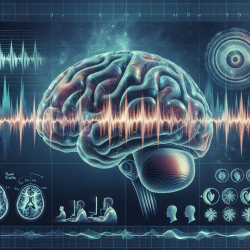Introduction
As practitioners dedicated to improving children's lives, it is essential to stay informed about the latest research and incorporate evidence-based practices into our work. The study titled Mindful Coping Power Effects on Children’s Autonomic Nervous System Functioning and Long-Term Behavioral Outcomes offers valuable insights that can significantly enhance our therapeutic approaches. This blog will explore the key findings of this research and provide actionable strategies for practitioners to implement in their practice.
Understanding Mindful Coping Power (MCP)
Mindful Coping Power (MCP) is an innovative adaptation of the Coping Power (CP) program, designed to integrate mindfulness training into cognitive-behavioral interventions. The goal of MCP is to improve children's self-regulation, embodied awareness, and stress physiology, ultimately leading to better long-term behavioral outcomes. The study conducted by Boxmeyer et al. (2023) provides compelling evidence supporting the efficacy of MCP in achieving these objectives.
Key Findings
- Improved Social Skills: MCP significantly enhanced children's social skills compared to CP, with an effect size of 0.57.
- Reduction in Reactive Aggression: MCP showed a statistical trend for reducing reactive aggression, with an effect size of -0.46.
- Better Stress Physiology: MCP had a significant positive impact on children's autonomic nervous system functioning, particularly in maintaining skin conductance reactivity (SCL) during stress-inducing tasks.
- Mediating Role of Inhibitory Control: Improvements in inhibitory control mediated the effects of MCP on reducing reactive aggression at the one-year follow-up.
Implementing MCP in Practice
Given the promising results of MCP, practitioners can take several steps to integrate these findings into their therapeutic work:
- Incorporate Mindfulness Training: Introduce mindfulness practices such as breath awareness, body scans, and mindful listening into your sessions. These practices can help children develop better self-regulation and embodied awareness.
- Focus on Inhibitory Control: Design activities that enhance inhibitory control, such as impulse control games and exercises that require children to pause and think before acting.
- Monitor Stress Physiology: Utilize tools to assess and monitor children's autonomic nervous system functioning. This can provide valuable feedback on their progress and help tailor interventions more effectively.
- Engage Parents: Educate parents on the benefits of mindfulness and provide them with resources to practice mindfulness at home. Parental involvement can reinforce the skills learned during therapy sessions.
Encouraging Further Research
While the findings of this study are encouraging, it is essential to continue exploring the long-term effects of MCP and its applicability across diverse populations. Practitioners are encouraged to stay updated with ongoing research and consider participating in studies that further investigate the impact of mindfulness-based interventions on children's behavioral and physiological outcomes.
Conclusion
The integration of mindfulness into cognitive-behavioral interventions like Coping Power has the potential to significantly improve children's long-term behavioral outcomes. By incorporating the strategies outlined in this blog, practitioners can enhance their therapeutic approaches and contribute to better outcomes for the children they serve.
To read the original research paper, please follow this link: Mindful Coping Power Effects on Children’s Autonomic Nervous System Functioning and Long-Term Behavioral Outcomes.










